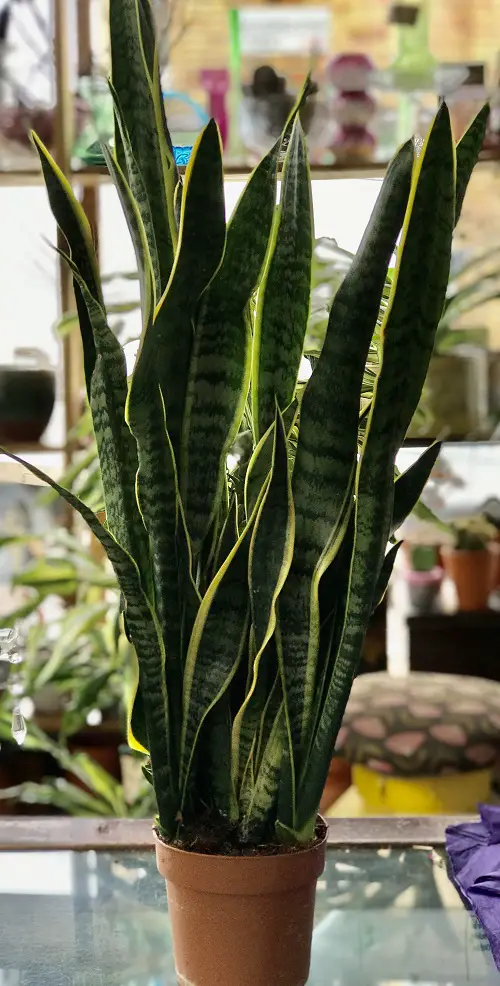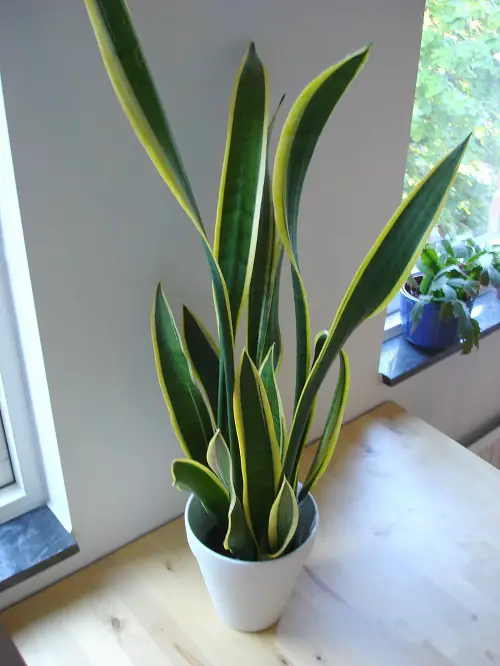Learn How to Grow Big and Tall Snake Plants with our helpful tips and instructions, and flaunt them in your home and garden!

If you desire a Snake Plant that is not just any ordinary one but the tallest, boldest, and largest that can be grown, with a cluster of healthy leaves that reach towards the sky, then we will provide you with our top tips on How to Grow Big and Tall Snake Plant!
Find How to Make a Snake Plant Fuller and Bushier with More Leaves
How Tall and Quick Snake Plants Can Grow?

It is essential to maintain realistic expectations for your Snake Plant’s growth rate, even under optimal conditions. Compared to Pothos or Spider Plants, Snake Plants grow at a slower pace.
If your Sansevieria grows a few inches each month during the growing season, consider it satisfactory progress. Additionally, keep in mind that height is not the only important factor. Snake Plants grown in dim light may produce long leaves, but they will be weak and frail.
To promote your Snake Plant’s growth, provide it with adequate light and water, and re-pot it regularly to allow the roots to expand. A well-balanced dose of fertilizer every month can also be beneficial.
However, be careful not to overdo any of these techniques, as the excessive application can be detrimental.
Tricks and Tips for Growing Big and Tall Snake Plants
1. Choose a Tall Variety
With proper care and attention, a mature and healthy Snake Plant has the potential to exceed the height of its owner, sometimes growing to 6 feet or more.
Some of the best tall varieties you can grow are Sansevieria Bacularis, Sansevieria Stuckyi Sansevieria Cylindrica, and Sansevieria laurentii.
Tip: If you desire a larger plant, consider selecting the tall snake plant varieties.
2. Have Patience
It’s important to have patience with your Snake Plant, even with the larger cultivars, as they will still take several years to reach their maximum size.
On average, these plants grow between 1-3 inches per month during the growing season, producing approximately 2-4 new leaves. While following the advice provided below may increase the growth rate somewhat, it’s unrealistic to expect your plant to double in size each year.
3. Go Easy With Watering
Check the around every 10-14 days and water when it’s almost entirely dry. Once there’s only a hint of moisture left at the bottom of the pot, water the plant thoroughly until it starts draining from the pot’s bottom. However, this approach only works if the plant receives plenty of sunlight, as it needs to photosynthesize to grow.
Pro Tip: Water the plant only when the topsoil feels dry to the touch. This will trick the plant into growing more roots in search of water, which will ultimately help it absorb more nutrition, helping it grow tall. Read more Snake Plant Watering Tips.
4. Improve their Diet
Fertilization is essential for their growth, but too much can result in the buildup of mineral salts around the roots, causing harm to the plant.
To avoid this, add liquid fertilizer diluted to 1/4 to 1/6 of the recommended dose every 10-14 days in the growing season. The ideal ratio of nitrogen, phosphorus, and potassium is 3:1:2, but a balanced 10:10:10 or 20:20:20 formula is also suitable.
Do remember that fertilizing during winter is counterproductive. Furthermore, if you recently repotted your Snake Plant with store-bought potting mix, it likely already contains nutrients, so wait at least six months before adding more fertilizer. You can check these Snake Plant Fertilizers for Excellent Growth.
5. Keep it Root Bound
It is a good idea to keep the plant in a slightly root-bound stage. This will ensure that it stays within the similar growing requirements, growing more pups and increasing the height on its own. Just let the plant be, and it will keep on growing at its own steady rate.
Tip: If you are planning to re-pot the plant, check if the roots have clumped together tightly in a cylinder. If so, gently separate them with your fingers to encourage growth in the new space. Avoid being too forceful, as this may damage the roots.
6. Provide Sufficient Light
Snake Plants are often recommended as excellent low-light houseplants because they can thrive in relatively dim conditions. However, they do need sunlight to grow tall!
To increase the amount of light your plant receives, try gradually moving it closer to a window or transferring it to a more light-filled location, such as an east-facing windowsill or balcony.
You can also expose your plant to morning sunlight light for 3-4 hours each day.
Be mindful of overheating if you place it in a southern or western window, and ensure that the temperature doesn’t exceed 85 degrees Fahrenheit.
Note: In case you don’t have a bright enough spot or you want to encourage growth during winter, artificial lighting from grow lamps can be beneficial.
Learn How to Make Snake Plants Grow Faster





